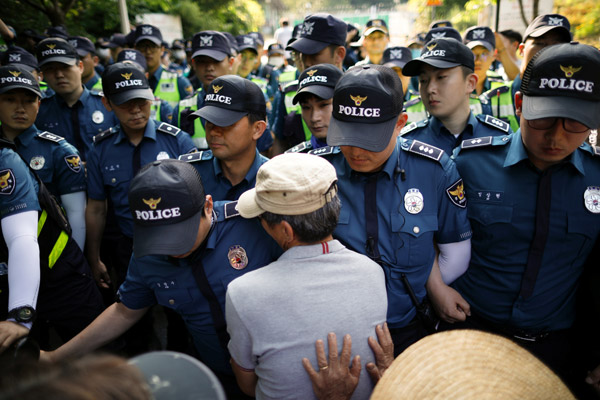Closer talks can resolve THAAD issue


Editor's Note: Protests by local residents on April 12 forced the Republic of Korea Defense Ministry to halt the transport of construction materials to build additional facilities at the site of the Terminal High-Altitude Area Defense antimissile system in Seongju county. Three experts share their views on the deployment of THAAD in the ROK and Beijing-Seoul relations with China Daily's Pan Yixuan.
Solving THAAD problem will take a long time

The deployment of THAAD in the ROK is a hard-to-remove wedge in Beijing-Seoul relations. China has firmly opposed the deployment of THAAD right from the beginning because the system could harm its national security interests, by restraining its defense power. But it is hard for ROK President Moon Jae-in to repeal the agreement to deploy THAAD because of Washington's pressure on Seoul and the shadow of potential conflict between the Democratic People's Republic of Korea and the United States.
In fact, the solution to the Beijing-Seoul deadlock over THAAD depends on the US and its Asia-Pacific strategy, as well as on China-US relations. The US installed the THAAD system to strengthen its presence in the Asia-Pacific and guard against a possible DPRK attack on the ROK, and US military sites in that country.
So, despite attaching great importance to cooperation, Beijing and Seoul cannot find a solution to the THAAD problem in the short term. To solve the problem, China needs to seek common grounds with both the ROK and the US, including promoting the peace process on the Korean Peninsula and deepening communication in other fields based on cooperation.
With ROK and DPRK agreeing to hold talks (on April 27), and the breaking of ice in US-DPRK relations, THAAD became an issue of lesser importance for both Washington and Seoul. But now President Moon has the opportunity to slow down THAAD's deployment, which has drawn criticism from home and abroad alike ever since former ROK president Park Geun-hye agreed to install it. Meanwhile, China should seize the chance to deepen communication with the ROK on THAAD, in order to reach more agreements on long-term mutual development.
Shen Haitao, a professor at Northeast Asian Studies College, Jilin University


































